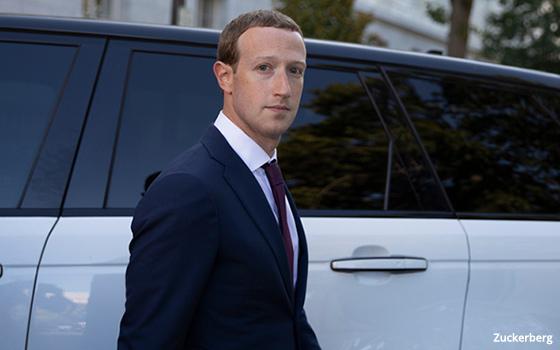U.S., U.K., Australian Governments Ask Facebook To Hit Pause On Encryption
- by Gavin O'Malley @mp_gavin, October 4, 2019
Government officials from the United States, the United Kingdom, and Australia are calling on Facebook to pause production of all messaging apps featuring end-to-end encryption until they can ensure such services won’t enable terrorism, child abuse and other criminal activity.
“We are writing to request that Facebook does not proceed with its plan to implement end-to-end encryption across its messaging services without ensuring there is no reduction to user safety and without including a means for lawful access to the content of communications to protect our citizens,” according to a letter signed by U.S. Attorney General William Barr, Acting Homeland Security Secretary Kevin McAleenan, U.K. Home Secretary Priti Patel, and Australia’s Minister for Home Affairs Peter Dutton.
In the letter, the officials cite a post published by Mark Zuckerberg earlier this year, in which Facebook’s cofounder-CEO admitted: “There are real safety concerns to address before we can implement end-to-end encryption across all our messaging services.”
In his post, Zuckerberg also acknowledged: “When billions of people use a service to connect, some of them are going to misuse it for truly terrible things, like child exploitation, terrorism and extortion.” He added: “We have a responsibility to work with law enforcement and to help prevent these wherever we can.”
Yet, according to Barr and other officials, “Facebook has not committed to address our serious concerns about the impact its proposals could have on protecting our most vulnerable citizens.”
In what was seen as a major strategic shift for Facebook, Zuckerberg announced plans to begin building a private, encrypted messaging platform in March.
In the face of multiple privacy mishaps, critics have questioned whether Facebook can be trusted to secure the contents of any such messaging service.
Even Zuckerberg admitted: “Frankly, we don’t currently have a strong reputation for building privacy protective services.”
Yet, government officials are clearly concerned that Facebook’s proposed messaging services might be too secure.
In response, advocates of all stripes rushed to Facebook’s defense on Friday.
“This is a staggering attempt to undermine the security and privacy of communications tools used by billions of people,” Andrew Crocker and Joe Mullin, a senior staff attorney on the Electronic Frontier Foundation’s civil-liberties team and a policy analyst on EFF’s intellectual property team, arg ued on Friday. “Facebook should not comply.”
“Law enforcement and national-security agencies in these three countries are asking for nothing less than access to every conversation that crosses every digital device,” Crocker and Mullin contend.
Even Edward Snowden weighed in on Friday. “The government is demanding backdoor access to the private communications of 1.5 billion people using [WhatsApp],” he tweeted. “If [Facebook] agrees, it may be the largest overnight violation of privacy in history.”
While Facebook has yet to respond directly to the letter signed by Barr and other officials, Zuckerberg defended Facebook’s foray into encrypted messaging, this week.
Addressing Facebook employees during a livestream on Thursday, Zuckerberg said he remained “optimistic” that any such services would not become bastions of criminal activity.



